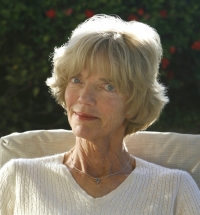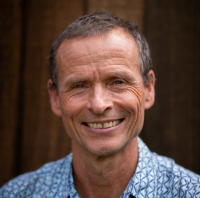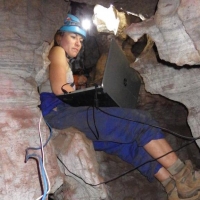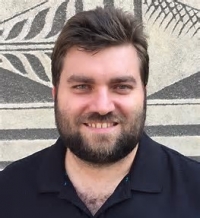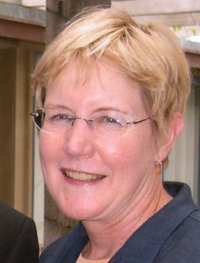Osher Master Class I: Special Topics in Human Origins
Biographical Sketches: Speakers
University of California, San Diego
Patricia Smith Churchland is a neurophilosopher, now retired from the University of California San Diego, and an Adjunct Professor at the Salk Institute. She focuses on how discoveries in neuroscience impact traditional ideas about ourselves and how philosophers can usefully collaborate with scientists. She wrote the pioneering book, Neurophilosophy (MIT Press, 1986), and is co-author with T. J. Sejnowski of The Computational Brain (MIT Press, 1992). Her current work focuses on morality and the social brain: Braintrust: What Neuroscience tells us about Morality (Princeton University Press, 2011) and Conscience: The Origins of Moral Intuition (W. W. Norton & Company, 2019). She won a MacArthur Prize in 1991, the Rossi Prize for neuroscience in 2008, and the Prose Prize for science for Braintrust.
Extended interviews can be found on YouTube, The Science Network, and on Serious Science.
UC San Diego
Pascal Gagneux is CARTA's Executive Co-Director, a Professor of Pathology and Anthropology, and the Department Chair of Anthropology at UC San Diego. He is interested in the evolutionary mechanisms responsible for generating and maintaining primate molecular diversity. The Gagneux laboratory studies cell-surface molecules in closely related primates species. His focus is on glycans, the oligosaccharides attached to glycolipids and glycoproteins of the surfaces of every cell and also secreted into the extra-cellular matrix. Gagneux's laboratory is exploring the roles of molecular diversity in protecting populations from pathogens as well as potential consequences for reproductive compatibility. Dr. Gagneux’s interest is in how glycan evolution is shaped by constraints from endogenous biochemistry and exogenous, pathogen-mediated natural selection, but could also have consequences for sexual selection. Dr. Gagneux has studied the behavioral ecology of wild chimpanzees in the Taï Forest, Ivory Coast, population genetics of West African chimpanzees, and differences in sialic acid biology between humans and great apes with special consideration of their differing pathogen regimes. In 2011, while Associate Director of CARTA, Dr. Gagneux helped to establish a graduate specialization in Anthropogeny at UC San Diego. This wholly unique graduate specialization is offered through eight participating graduate programs in the social and natural sciences at UC San Diego.
Community Member
Lindsay Hunter served CARTA in the role of Community Engagement & Advancement Director from October 12, 2019, through May 8, 2024. Lindsay is trained in Biological Anthropology (specializing in human evolutionary anatomy and Pleistocene hominin evolution), though her current academic interests are within the following domains: how scientific collaboration networks impact epistemology; STEM history; UNESCO World Heritage Site management and local tourism; and the development of Public Palaeoanthropology as a community enterprise. She strives to co-interpret and apply the sometimes arcane subject of deep hominin history in relatable, practical ways that improve understanding and empathy in the present with the goal of that ultimately contributing to a more equitable future for our species.
Lindsay received her Master’s degree in Biological Anthropology from the University of Iowa in 2004, and has studied fossil and human bone collections across five continents with major grant support from the National Science Foundation (United States) and the Wenner-Gren Foundation for Anthropological Research. She has been an Honorary Research Fellow of the Evolutionary Studies Institute (ESI) at the University of the Witwatersrand (Wits) since 2013, and pursued postgraduate research within the Wits School of Geography, Archaeology and Environmental Studies from 2017-2021 under the supervision of Amanda Esterhuysen, PhD (GAES), and Bernhard Zipfel, MD, PhD (ESI).
In 2013, Lindsay was selected as one of six Advance Cave Archaeologists, "Underground Astronauts," who the first to excavate the Dinaledi Chamber, the type site of the human relative Homo naledi, within Rising Star Cave in the Cradle of Humankind World Heritage Site (CoH WHS), South Africa. The 2013 Rising Star Expedition, directed by now National Geographic Explorer-in-Residence Lee Berger (formerly of Wits), included senior scientists and CARTA Members John Hawks (University of Wisconsin, Madison) and Steven Churchill (Duke University). As a member of the original team, Lindsay was a joint recipient of the South African National Research Foundation’s Science Team Award in 2014 and is an Honorary Research Fellow of the Evolutionary Studies Institute (ESI) at Wits. As a National Geographic Explorer, between 2016-2019, Lindsay developed and managed the National Geographic-sponsored Umsuka Public Palaeoanthropology Project in the CoH WHS from the historic Westbury Township in Johannesburg, South Africa.
UC San Diego
Federico Rossano is an Assistant Professor in the department of Cognitive Science at the University of California, San Diego. He obtained a laurea (BA+MA) in Communication Studies with a specialization in Semiotics from the University of Bologna (Italy). He received his PhD in Linguistics from the Max Planck institute for Psycholinguistics and Radboud University, Nijmegen (The Netherlands) and has worked as a post-doctoral researcher in the Department of Developmental and Comparative Psychology at the MPI for Evolutionary Anthropology in Leipzig (Germany). He has authored publications on psychotherapeutic interactions, joint attention and voice following in human infants and non-human primates, the development of property concerns, social norms, value perception and distributive and procedural justice in human ontogeny, gaze behavior in face-to-face interactions in different human cultures, gesture ontogeny and the development of communicative signals in baby non-human primates. His current research adopts a comparative perspective on social cognition and is focused on the development of communicative abilities and social norms in human and non-human primates.
UC San Diego
Margaret Schoeninger is Distinguished Professor Emerita of Anthropology at UC San Diego, a Research Archaeologist in the Glenn Black Laboratory of Archaeology at Indiana University, and Emerita Co-Director of CARTA. She has done fieldwork in North America, Mexico, Pakistan, India, Kenya, and Tanzania as well as laboratory research on carbon, nitrogen, and oxygen stable isotope ratio analysis in biological tissues and food component analysis of traditional foods. Her major interest is in the evolution of human diet particularly as it informs our understanding of the appearance and evolution of the human lineage.
